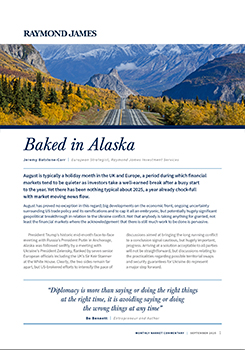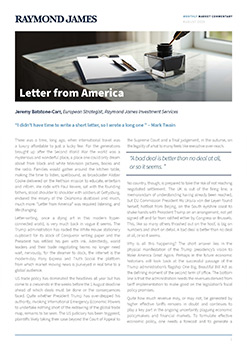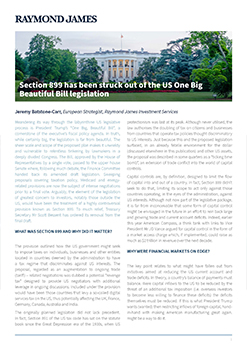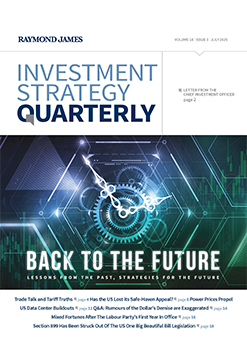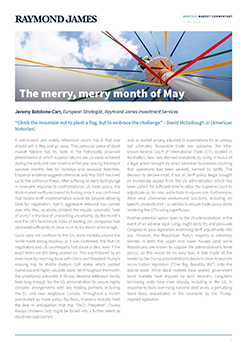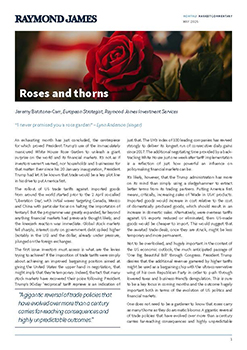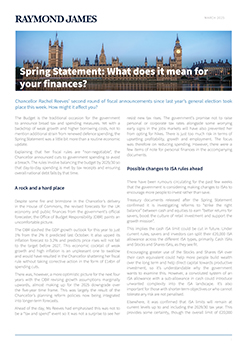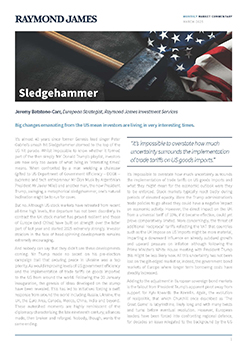August is typically a quiet month for the financial markets, however, this year it has been filled with market-moving news. Our European Strategist, Jeremy Batstone-Carr, examines key economic and geopolitical events of the last few weeks.
Letter from America
Section 899 has been struck out of the US One Big Beautiful Bill legislation
Investment Strategy Quarterly – July 2025
Our latest Investment Strategy Quarterly considers the complexities of today’s markets while drawing insights from the past. This edition includes the historic and current impact of tariffs, asks if the US still holds its safe-haven appeal for investors, and examines energy costs and AI. Closer to home, we take a look at Labour’s first year in office.
The merry, merry month of May
Roses and thorns
Investment Strategy Quarterly – April 2025
The second Investment Strategy Quarterly of 2025 takes the lid off some of the big themes in global investments at the moment, including the Trump effect across tariffs, deregulation, deportations and more, as well as options for UK market resilience in the face of challenging times. We also take a look at potential strategies for Europe and the case for industrial metals.
Read all this and more in Investment Strategy Quarterly: Markets on the Clock.
Spring Statement: What does it mean for your finances?
Sledgehammer
Twin Peaks
Jeremy Batstone-Carr, Raymond James European Strategist, takes a deep dive into some of last month’s destabilizing activities including the potential ramifications of the new US administration’s campaign promises and the recent upset in the technology sector generated by China’s norm-busting AI model, DeepSeek.




